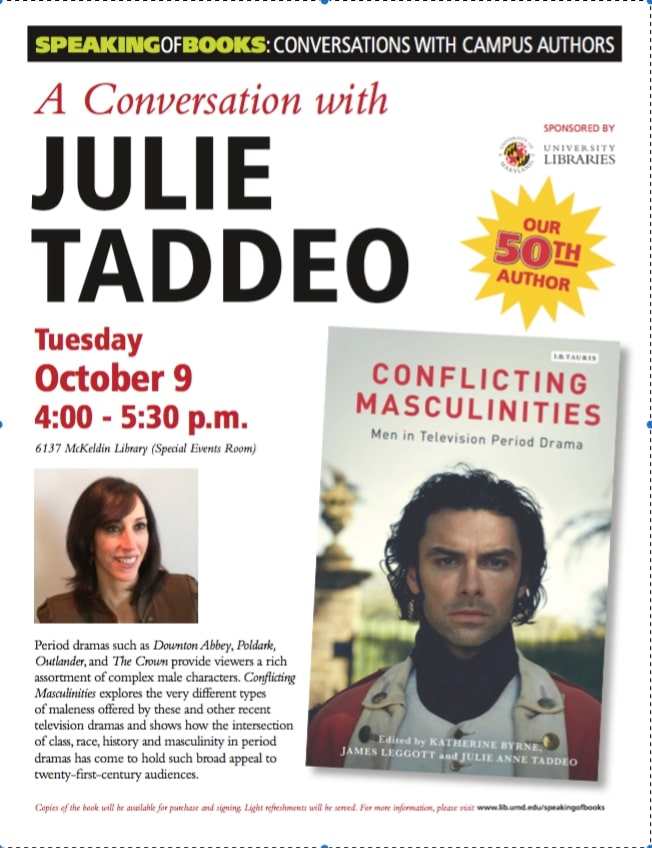A Conversation with Julie Taddeo

A Conversation with Julie Taddeo
Join Professor Julie Taddeo as she discusses her new book Conflicting Masculinities: Men in Television Period Drama.
from Amazon.com:
Whether it is a half-naked Ross Poldark working in the fields or Lord Grantham in front of Downton Abbey, representations of historical masculinity currently dominate our television screens. In recent years diverse forms of period drama have begun to foreground and examine “maleness” in exciting new ways. Neo-Victorian Gothic fictions like Ripper Street and Penny Dreadful represent masculinity at its darkest and most predatory, while gritty anti-heritage series like The Village and Peaky Blinders portray masculinity in crisis, at moments in history in which patriarchy was under attack by external forces like World War One, the rise of first wave feminism, and the breakdown of Empire. This collection of new writing on twenty-first century drama begins with the depiction of the eighteenth century in programmes as different as Outlander and Banished, moves on to dark visions of the nineteenth century like The Frankenstein Chronicles, before dealing with the representation of the traumatic impact of war in programmes from Downton Abbey to Home Fires, and closing with the unconventional 1950s masculinity of David Walliams in the recent adaptation of Agatha Christie's Partners in Crime. Essays explore the very different types of maleness offered by contemporary television, while tracing certain key male roles and figures: detectives, criminals, soldiers, conscientious objectors, lovers and family men. Sometimes violent, often troubled, and always complex, these male characters struggle with the demands of family and economic and moral survival in a rapidly changing world. As they explore the intersections of class, race, and masculinity, these dramas restore lost or marginalized voices to both history and the small screen and, equally important, appeal to contemporary desires, fears, and expectations. With contributions from scholars of film and media, literature, history, and gender studies, this book will appeal to academics as well as fans of British television.

